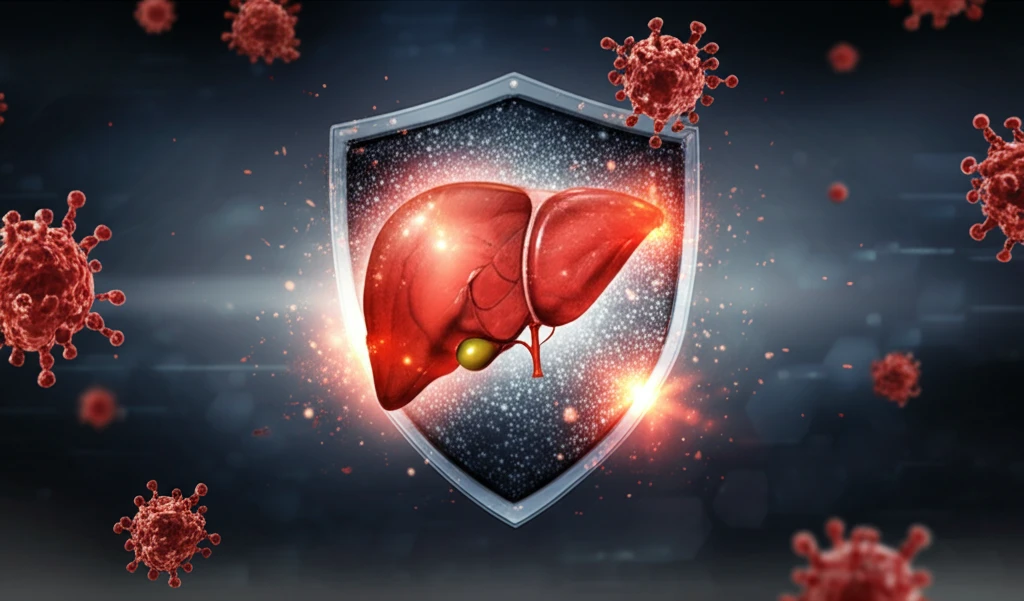
Unlock the Power of Astaxanthin: Your Guide to Liver Protection
"Discover how this potent antioxidant can safeguard your liver and overall health."
In today's health-conscious world, protecting our vital organs is paramount. The liver, responsible for numerous metabolic functions, is increasingly susceptible to damage from factors like poor diet, environmental toxins, and metabolic disorders. Non-alcoholic fatty liver disease (NAFLD), a condition characterized by fat accumulation in the liver, has become a significant concern, linked to cardiovascular and cancerous diseases. Protecting against liver damage is more important than ever.
One promising avenue for liver protection lies in the realm of natural supplements. Astaxanthin, a vibrant red pigment found in algae and seafood, has emerged as a potential protector against liver damage, primarily due to its potent antioxidant properties. This article delves into the science behind astaxanthin, exploring its mechanisms of action and the evidence supporting its role in promoting liver health.
Astaxanthin (3,3'-dihydroxy-β,β-carotene-4,4'dione, C40H52O4), a xanthophyll carotenoid, is not just another antioxidant; it's a powerhouse. Found in various microorganisms and marine animals, astaxanthin stands out due to its unique molecular structure, which allows it to quench free radicals and protect cells from oxidative stress with remarkable efficiency. Its potential benefits extend beyond simple antioxidant activity, offering a multi-faceted approach to liver protection.
The Liver's Importance and the Promise of Astaxanthin

The liver is vital in maintaining overall health, acting as the body's primary detoxification center and playing a crucial role in lipid and glucose metabolism. When the liver is compromised, it can lead to a cascade of health problems, including insulin resistance, inflammation, and an increased risk of chronic diseases. Modern lifestyles, characterized by processed foods and sedentary habits, often contribute to liver damage. Recognizing the importance of liver health is the first step toward preventative care.
- Combating Oxidative Stress: Astaxanthin's unique molecular structure allows it to neutralize free radicals effectively, protecting liver cells from damage.
- Reducing Lipid Accumulation: Studies indicate that astaxanthin can help regulate lipid metabolism, reducing the buildup of fat in the liver.
- Improving Insulin Sensitivity: By modulating key metabolic pathways, astaxanthin may improve insulin sensitivity, reducing the risk of insulin resistance and related liver problems.
- Supporting Liver Regeneration: Research suggests that astaxanthin may promote liver cell regeneration, aiding in the repair of damaged tissue.
The Future of Astaxanthin and Liver Health
While current research paints a promising picture of astaxanthin's potential as a liver protector, more human studies are crucial. These studies should focus on determining the optimal dosage, duration of treatment, and long-term effects of astaxanthin supplementation on liver function in various populations. As we continue to explore the benefits of astaxanthin, we can unlock new strategies for protecting our liver and promoting overall health and well-being.
